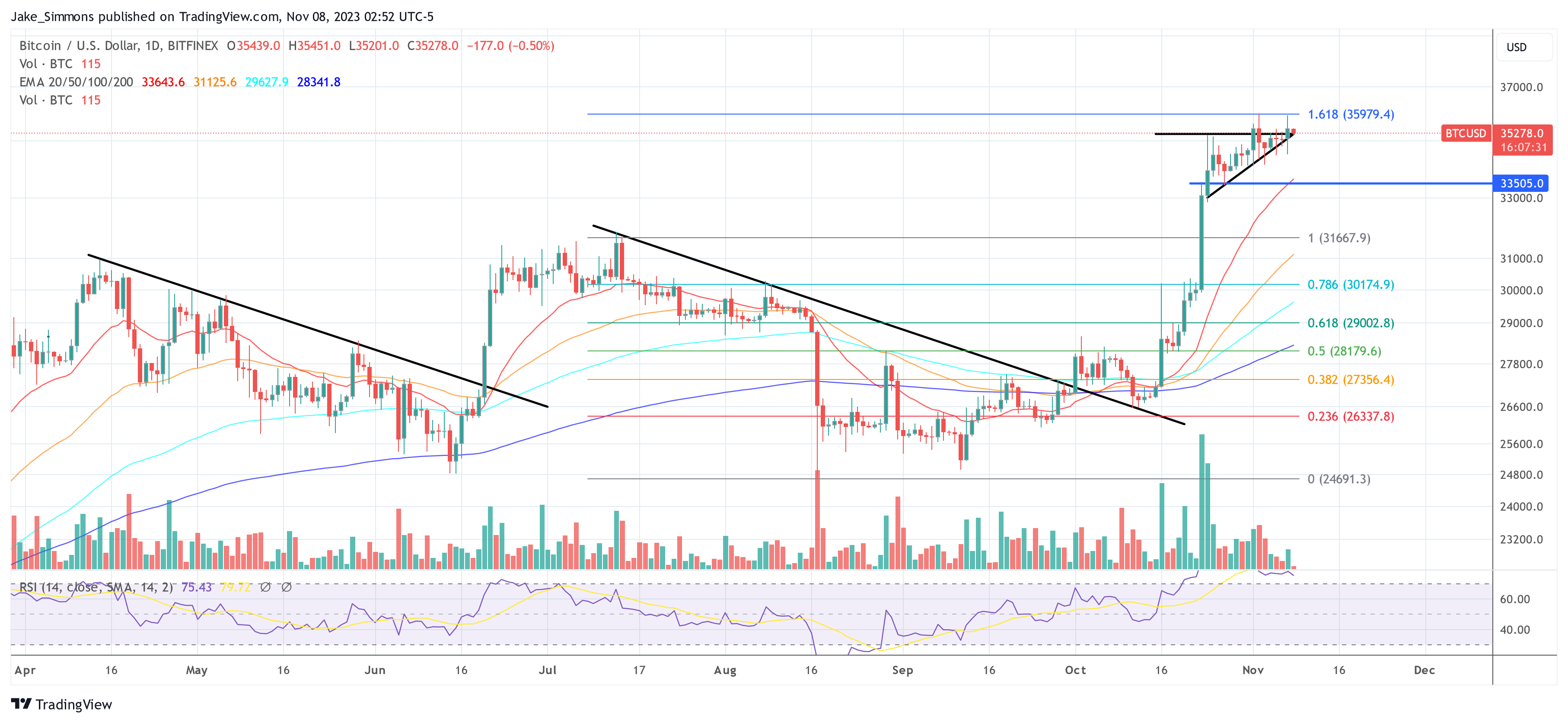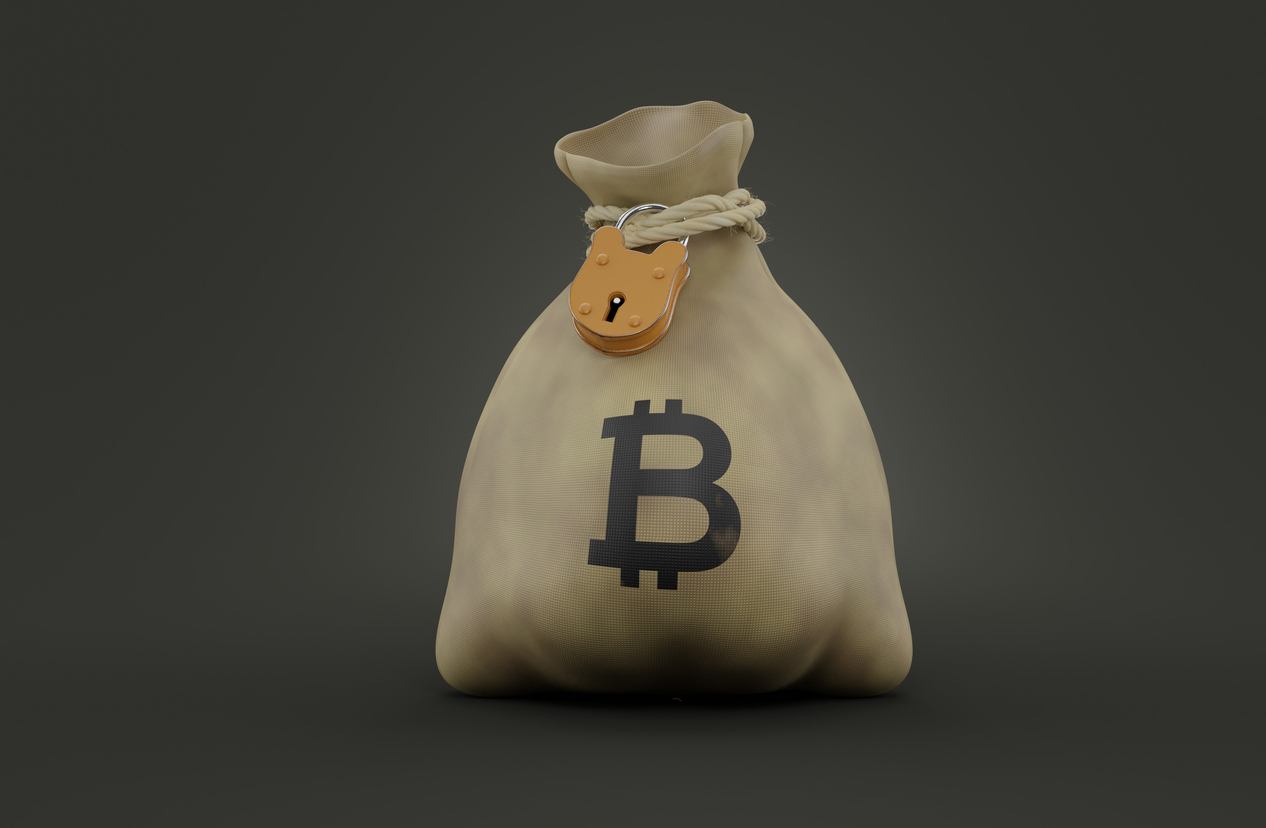In a series of insightful observations, Adam Cochran, a renowned expert in the field of cryptocurrency and founder of Cinneamhain Ventures, recently shared his analysis on the relationship between Bitcoin price movements and US Treasury auctions. Cochran’s comments, primarily disseminated viaX (formerly known as Twitter), offer a unique perspective on an emerging trend in the market, particularly in relation to traditional financial instruments.
Bitcoin Price Rises After Each Treasury Auction
Cochran notes a distinct pattern: “Some big market maker seems to really care about real rates vs Bitcoin (I guess in anticipation of ETF buyers?). Every time you get a good auction on US treasuries, you’ve got about 5 min before BTC takes a leg up.” This observation suggests a correlation between the outcomes of USTreasury auctions and subsequent movements in Bitcoin prices.
The essence of Cochran’s theory revolves around the concept of real interest rates and their inverse relationship with Bitcoin. Real rates refer to the interest rates adjusted for inflation. In traditional finance, these rates significantly influence investment decisions across various asset classes.
Cochran posits that a successful US Treasury auction, which typically indicates lower yields (and hence lower real rates), is quickly followed by a spike in Bitcoin prices. This trend, according to Cochran, is indicative of a market maker betting on large funds allocating to Bitcoin as a hedge against real rates.
This relationship becomes particularly significant in light of discussions around Bitcoin Exchange-Traded Funds (ETFs). According to Bloomberg experts, there is a 90% chance of a spot Bitcoin ETF receiving approval by the end of the year.
One of the reasons for this is that the US Securities and Exchange Commission (SEC) has been actively communicating with applicants such as BlackRock and Fidelity in recent weeks, as a result of which amendments to the application have been submitted. The increasing seriousness of these conversations seems to have amplified the correlation, as noted by Cochran: “Someone is making the bet that large funds will allocate to Bitcoin as a counter to real rates which would be huge.”
Furthermore, Cochran highlights the impact of Bitcoin’s price movements on the broader financial market: “The BTC momentum on any upswing is pretty clear, it’ll suck a lot of momentum out of other parts of the market, because its current catalysts are just on another scale.”
Backtest For The Theory Still Pending
In response to an inquiry about backtesting this theory, Cochran admitted the lack of long-term data but emphasized the recent nature of this trend: “Hrm, someone probably has that data? I’ve just been monitoring manually, and the correlation has only been the past few weeks to month, since the ETF convo got serious, so a long dated backtest wouldn’t hold.”
This acknowledgment points to the nascent stage of this observed correlation. Nevertheless, Cochran’s insights offer a compelling narrative linking traditional financial markets with Bitcoin. As the conversation around Bitcoin ETFs gains momentum, these observations could become increasingly relevant, offering valuable insights for investors.
At press time, Bitcoin traded at $35,278.









